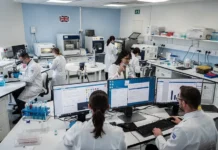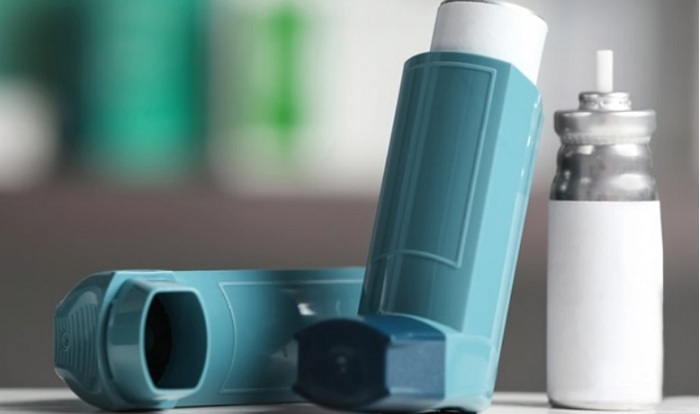QUT researchers are collaborating with colleagues at the University of Oxford on a UK clinical trial to test common asthma inhalers as a treatment for COVID-19 infection.
Associate Professor Nicolau (pictured) and the QUT team, including Honors student Alexander Hasson, will be coordinating trial data analysis, modelling of pathological mechanisms and building COVID-19 maths models to explain and use the clinical trial data to optimize patient treatment.
The STOIC trial clinical lead is University of Oxford Professor Mona Bafahdel and collaborators include former QUT Postdoctoral Research Fellow Dr Nabil Fadai, recently appointed to Assistant Professor in Mathematical Biology at the University of Nottingham.
Associate Professor Nicolau, from the QUT Science and Engineering Faculty School of Mathematical Sciences, said about 500 patients are needed for the trial.
Some patients will be given the corticosteroid budesonide, while others are given a placebo. Budesonide is an inexpensive, widely prescribed inhaler medication used by people with asthma to prevent and control symptoms. It acts to reduce irritation and inflammation of the lungs and airways.
Associate Professor Nicolau said he and Professor Bafahdel, a respiratory physician and mentor since his medical studies at Oxford, had noticed early on in the pandemic that people with asthma and the chronic lung disease COPD were under-represented in the numbers of seriously ill COVID-19 patients.
Associate Professor Nicolau said mathematical modelling by the STOIC study team suggests that “the earlier we apply the inhaled steroid treatment the more people we’ll be able to keep from getting sick”.
University of Oxford researchers recently released promising preliminary results from a separate RECOVERY (Randomized Evaluation of COVID-19 Therapy) trial of another corticosteroid, dexamethasone, in treating COVID-19 patients. Dexamethasone, which is taken by mouth rather than inhaled, is used to treat a range of inflammatory-related conditions including allergies, arthritis and severe asthma. Early data from the RECOVERY trial reported that the drug reduced deaths by one-third among COVID-19 patients who were on ventilators in intensive care units.




















